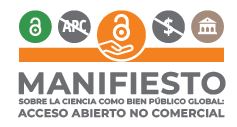Artificial intelligence in Higher Education: Between opportunities and ethical challenges
DOI:
https://doi.org/10.5281/zenodo.13983420Keywords:
Artificial Intelligence, higher education, opportunities, academic fraudAbstract
The recent introduction of artificial intelligence (AI) in the educational field without clear guidance for educators has generated fear and concerns, such as academic fraud. In this regard, taking into account the contributions of authors such as Mollick & Mollick (2023), Vera (2023), Southworth et. al (2023), and UNESCO, a series of relevant recommendations are proposed regarding the opportunities and challenges that arise for implementing AI in university campuses. Among other things, it is concluded that there is a need for teachers to become familiar with the use of AI tools to take advantage of the opportunities that it brings to higher education and to encourage students to do the same, without neglecting critical reflection to make ethical use of it.
Downloads
References
Luckin, R. et al. (2016). Intelligence Unleashed: an argument for AI in Education. Pearson.
Mollick, E. y Mollick, L. (2023). Why All Our Classes Suddenly Became AI Classes Strategies for Teaching and Learning in a ChatGPT World. Harvard Business Publishing. https://n9.cl/6jpqz
Rodríguez, R. y Kannan, H. (2023). Active Learning, AI Style: The Role of Agent GPT in the Classroom. SwissCognitive. https://n9.cl/vka1h
Southworth, J. et al. (2023). Developing a model for AI Across the curriculum: Transforming the highereducation landscape via innovation in AI literacy. Computers and Education: Artificial Intelligence, 4, 100127, 1-10. https://shre.ink/8qdk
Vera, F. (2018). Tecnología digital para la inclusión social: Experiencia en la Universidad de Aconcagua. IKASNAR. https://rediie.cl/wp-content/uploads/UCPDF201218-43-53.pdf
Vera, F. (2023). Integración de la Inteligencia Artificial en la Educación superior: Desafíos y oportunidades. Revista Electrónica Transformar. Vol. 4, N°1, 17-34. https://shre.ink/8qdl
Verma, M. (2018). Artificial intelligence and its scope in different areas with special reference to the field of education. International Journal of Advanced Educational Research. Vol. 3, N°1, pp. 5-10. https://files.eric.ed.gov/fulltext/ED604401.pdf
Zárate Valverde, R. (2021). Una vista a las oportunidades y amenazas de la inteligencia artificial de la educación superior. Revista Académica Institucional. Vol.3, N° 2, 49–61.
UNESCO (2019) Artificial Intelligence in Education: Challenges and Opportunities for Sustainable Development. https://shre.ink/8Sdn.
Published
How to Cite
Issue
Section
License
Copyright (c) 2024 Universidad Alonso de Ojeda

This work is licensed under a Creative Commons Attribution-NonCommercial-ShareAlike 4.0 International License.
All content of Ethos Journal will be free access, distributed under the Creative Commons license (BY-NC-SA).




